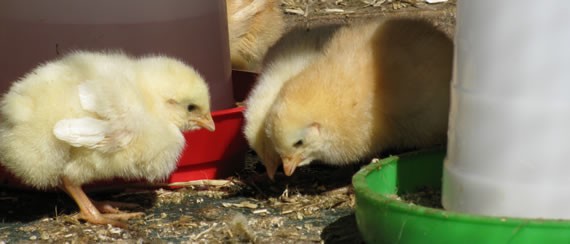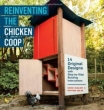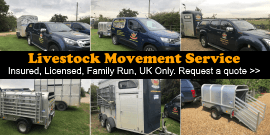Buying poultry
You may be limited by what your local breeders can supply. Magazines such as "Country Smallholding" have pages of adverts for poultry; if you live in a rural area, the local newspaper might also be a source.
Visiting breeders
Buy poultry from a reputable breeder; if at all possible, pick your hens up, so that you can have a look around. Most breeders will be happy for you to visit first to take a look at some hens and to get a feel for the different breeds. If you are unsure about anything just ask - a good breeder will be happy to answer your questions and to give advice. Be prepared to walk away if you are unhappy with the condition of the birds – don’t be tempted to take on sub-standard birds because you feel sorry for them.
Poultry auctions
Buying from an auction may get you a heap of grief, unless you know what you are doing. However, it’s good experience and very interesting, so it’s worth going along to a poultry sale just for a look, if you are confident that you can keep your hands in your pockets.
Your first flock
Start small; a flock of three hens is a good start (if one dies, you still have two as company for each other until you can restock). In a year or so, add another two or three to the flock. If you fill your accommodation to capacity on day one, in a couple of years you will have a group of middle-aged hens laying very few eggs and you will probably be too attached to them to do anything else than wait for them to die of old age. We’ve had one live to age seven, so it could be a long wait!
We started with three point-of-lay (POL) pullets in the spring of 2002; a Light Sussex, a Rhode Island Red, and a Black Rock. They lived in a small Forsham Cottage Ark that we still have and use.
Hens generally start to lay at about 20-22 weeks old, so the easiest way to start out is to buy point of lay (POL) pullets. These are easy to keep, you'll get pretty instant eggs and you don't have any cockerels to deal with because by that age, the two sexes are quite distinct. Naturally, this is the most expensive start up method.
Day old chicks
Another option is to buy day old chicks, but the level of stockmanship required is quite high, or certainly higher than buying POL, so maybe wait until you have some experience before trying this. You will also need a heat lamp or brooder and specialist feed. If the chicks you buy are from a sex-linked breed or strain, then you will be able to buy only female chicks.
 Day old chicks
Day old chicks
In sex-linked breeds / strains, the newly hatched female and male chicks will look quite different; in other breeds, both males and females will look the same (to the untrained eye) until much later, so you will almost certainly get some cockerels in the batch you buy.
Incubating fertilised eggs
You can buy fertilised eggs and hatch your own but, again, you'll need some specialised equipment such as an incubator and a brooder, if you don't have a broody hen, and you'll have to wait 5 months or so for your first egg. The same issue around cockerels exists with hatching eggs as it does with buying day-olds.
The cockerel question
If you buy non-sex-linked day-olds or hatch eggs, you will inevitably get male chicks. Now is the time to think about how you are going to deal with this. The market for breeding cockerels is very limited. The cockerels of laying breeds, even from utility strains, take a long time to fatten and don’t produce the best carcases, but you can eat them. See the later section on raising birds for the table. Abandoning cockerels at a farm gate because you can’t bear to kill them is simply not acceptable.
Ex-battery hens
If you have a battery farm nearby, you might want to try to get some spent layers from there. The output might be a bit unreliable at first but you will certainly have the satisfaction of giving some birds a happy "retirement". The Battery Hen Welfare Trust may be able to help if you fancy doing this.
- Previous « Starting with poultry
- Next Poultry breeds »

About Rosemary Champion
Rosemary lives on a 12 acre smallholding in Angus, in the east of Scotland, where she keeps Ryeland Sheep, Shetland cattle and assorted poultry. She was destined to be a smallholder from an early age.
Further Reading
 Chicken & Eggs: River Cottage Handbook No.11 Mark Diacono |  Storey's Guide to Raising Chickens Gail Damerow |  A Beginners Guide to Caring for Ex-Batts Jo Barlow |  Reinventing the Chicken Coop Matthew Wolpe |  Chickens: The Essential Guide to Choosing and Keeping Happy, Healthy Hens Suzie Baldwin |
Smallholding shop
When you click links below and make a purchase, this may result in this site earning a commission from eBay.

Auto Drinker - Large
Large Automatic… from £23.07 + p&p

Nutri - Drops Energy Booster 30ml
Nutri Drops from Net Tex… from £10.18 + p&p

Lid for 15kg Plastic Poultry Feeder each
Lid for 8 & 15KG feeders.… from £2.93 + p&p

Brinsea Mini Advance Incubator
Brinsea's Mini… from £127.95 + p&p



















